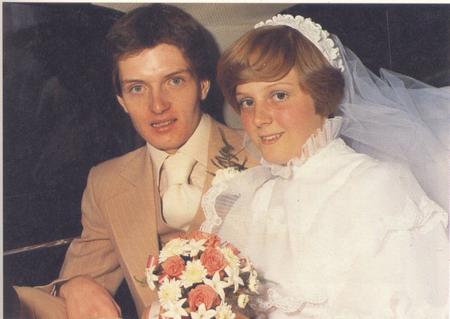
...his stalks were put into the ground. Nick Drake wrote a song called "Fruit Tree" that dealt with the subject of how many artists have never tasted success: it is their posthumous entity that gets the recognition, respect, and fame.
Whilst alive, Nick sold only five thousand copies of his three albums that he released from 1969-74, November 25, 1974, being the time of his death. He was only 26 years old. Over thirty years since, his music and legend have grown considerably. Maybe you saw those Volkswagen spots, the one with the Beetle. They used his song "Pink Moon"; a great song, very intimate.
I am not going to go into many details of his life, other than that most of that life was spent learning in excellent institutions, playing sports, and becoming a true musician, learning to master quite a handful of instruments. His main tool in his career was the guitar. This was the last instrument that he learned to play and it wasn't that soon before he was noticed by The Fairport Convention's bass player, Ashley Hutchings.
His sophisticated picking style is unique and not many can duplicate it. It isn't so much pyrotechnics as it is elegance and the thought behind each pluck. The same can be said of his smooth baritone: it's never loud and is beyond many other singers in it's simple, sustained beauty. His albums can range from full to bare, but are never thin, nor are they ever overbearing and busy.

One thing that I have noticed is the presence of his most spare compositions. He knows how to create that thick, negative space in-between his notes, much like how an artist would on canvass or pulp. This is something that is lost on many musicians. I have realized this in my own playing that you need to use that absence of sound to contrast to your manipulations of frequencies. Silence is only absent when you are not listening. What kind of musician doesn't listen? The thing about silence is that it is that reservoir of the subconscious. When you uncover it, even for a moment, it builds mood, because you fill in that void, that reservoir. That pool of subconscious then becomes a reflecting pool. The best part of this interaction between your senses and silence is that it happens so fast. This is what makes your rhythm and time signatures so essential when composing a song.
So what of his death? Well, Nick was not always depressed. He actually was a rather pleasant and joyful young man. It was when demands on his craft threatened his low key nature (he didn't like to perform and rarely did) that it seems he needed psychiatric help. It was in the early seventies on till his death that he was on the anti-depressant Tryptizol. He died from an overdose of this medication. The coroner ruled it as a suicide, but his family and friends believe it was just an accidental overdose. They explained that he was the happiest he'd ever been in three years, and had already completed four songs on an album project. They said that he seemed optimistic and excited to be finally working on a new album.

Well, we can't ask Nick what happened, but let's look at his words for a moment.
"Fruit Tree"
Fame is but a fruit tree
So very unsound.
It can never flourish
Till its stock is in the ground.
So men of fame
Can never find a way
Till time has flown
Far from their dying day.
Forgotten while you're here
Remembered for a while
A much updated ruin
From a much outdated style.
Life is but a memory
Happened long ago.
Theatre full of sadness
For a long forgotten show.
Seems so easy
Just to let it go on by
Till you stop and wonder
Why you never wondered why.
Safe in the womb
Of an everlasting night
You find the darkness can
Give the brightest light.
Safe in your place deep in the earth
That's when they'll know what you were really worth.
Forgotten while you're here
Remembered for a while
A much updated ruin
From a much outdated style.
Fame is but a fruit tree
So very unsound.
It can never flourish
Till its stock is in the ground.
So men of fame
Can never find a way
Till time has flown
Far from their dying day.
Fruit tree, fruit tree
No-one knows you but the rain and the air.
Don't you worry
They'll stand and stare when you're gone.
Fruit tree, fruit tree
Open your eyes to another year.
They'll all know
That you were here when you're gone.


 A little girl left behind: Natalie.
A little girl left behind: Natalie. Now all grown up and bearing her father's likeness and ever the artist, herself.
Now all grown up and bearing her father's likeness and ever the artist, herself.

